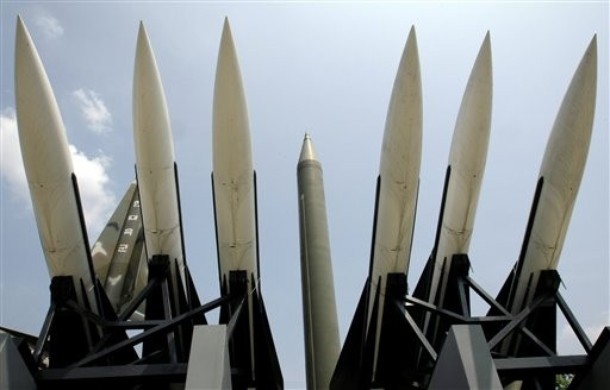The Wages of Peace

Robert Kaplan commemorates the fall of the Berlin Fall by lamenting the fact that millions of Europeans are no longer killing each other and are thus missing out on the benefits that large-scale slaughter and war bring to a society:
What does the European Union truly stand for besides a cradle-to-grave social welfare system? For without something to struggle for, there can be no civil society—only decadence.Thus, with their patriotism dissipated, European governments can no longer ask for sacrifices from their populations when it comes to questions of peace and war. Ironically, we may have gained victory in the Cold War, but lost Europe in the process.
I always assumed that a pacified Europe was the entire point of the exercise here. Alex Maisse isn't impressed either:
Now besides a "cradle-to-grave social welfare system" I'd say that the EU stands for, or at least has ambitions towards, peace and prosperity and that, whatever one may think of the organisation, these are hardly small things. Indeed, their absence through for much of the twentieth century was, shall we say, marked.For that matter, absorbing the countries of central and eastern europe into the EU is itself no tiny task and one that, not unreasonably, has preoccupied europe these past twenty years. That this absorbtion has, generally speaking, been a success is also an achievement of note. And, of course, the process is not yet complete.
Kaplan also makes this interesting argument:
Iran holds the key to changing the Middle East, much as the collapse of the Berlin Wall held the key to changing Europe. With a reformist regime in power in Teheran, turmoil in Iraq will lessen and Hezbollah may eventually be robbed of a sturdy patron, even as Syria is forced to make its peace with the West, and hopefully with Israel, too. All that, taken together, will release nascent democratic forces that can truly reform the Middle East.
Oh my, where have we heard this before?
Now, if any Middle Eastern nation would be a candidate for true liberalization it would be Iran. But really, isn't some modesty in order here? I suspect when the oil runs out we'll see a much sharper move toward liberalization and market-oriented economies - a true democratic revolution in the Middle East, much like collapsing commodity prices help push over the rotten edifice of the Soviet Union. Until then? Perhaps not so much.
UPDATE: Daniel Larison makes a good point:
In this column Kaplan offers his best Otto von Bismarck imitation. Bismarck was once quoted as saying that the world would succumb to materialism without war; Kaplan replaces materialism with decadence, but the idea is much the same. It is also worryingly similar to Teddy Roosevelt’s concept of war as a kind of invigorating sport. As Massie notes, Kaplan is rehashing ideas that were last fashionable approximately a century ago before WWI taught (almost) everyone that they were complete rubbish. In fact, the main movements that came out of the horror of WWI convinced more than ever that constant struggle and endless wars of “liberation” were essential to political health were the communists and fascists.
It's worth turning the Kaplan thesis on its head and asking what his reaction would be if China or Russia decided they wanted to save their civilization from decadence.
(AP Photos)



